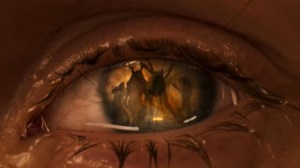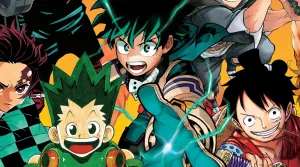The COVID-19 pandemic is affecting nearly every corner of everyday life, as people all around the world are asked to stay at home and prevent the virus from spreading further. Understandably, many are trying to fill their newfound free time with some sort of entertainment, whether it be streaming movies and television shows, playing games, or other content. If you’re particularly fond of the world of DC Comics, and are looking for some reading material during this time, odds are that you’ve heard of the DC Universe app. At only $7.99 per month plus tax, DC Universe offers a slew of movies, television shows, videos, and original content for fans to consume — as well as over 20,000 individual issues of comics.
Videos by ComicBook.com
With such a massive library – ranging from iconic stories to issues that are only a few months old – it might be daunting trying to figure out where to begin reading. That’s where we come in. As we did last week with Marvel Unlimited, we’ve selected fifteen corners of DC Universe’s comics worth diving into. Some span hundreds of issues and several years of storytelling, while others are just fantastic ways to get acquainted with a certain character or piece of canon.
Keep reading to see our recommendations for binge-worthy stories to read on DC Universe. If there are any others that you think deserve to be recommended, let us know in the comments below!
52

Issues: 52 #1-52, 52 Aftermath: The Four Horsemen #1-6, 52 Aftermath: Crime Bible – Five Lessons of Blood #1-5, Booster Gold (2007) #1-47, Black Adam: The Dark Age #1-6, and Infinity Inc. #1-12
Many regard 52 to be one of DC’s most ambitious events yet, telling a boundary-pushing new story across exactly fifty-two weeks. Spinning out of the events of Infinite Crisis, the saga follows a world without Superman, Batman, and Wonder Woman operating as main heroes, leading a slew of other costumed characters to thrive in a brave new world.
The series gave prominent roles to fan-favorites like Renee Montoya, Batwoman, Elongated Man, and so many more, while also bringing quite a lot of weird elements into the canon. It’s the kind of story that is the right mix of self-contained and incredibly expansive — and definitely something worth diving into.
Batman by Grant Morrison

Issues: Batman #655-658, #663-669, #672-683, #700-702; Batman & Robin #1-16; Batman: The Return; Batman: The Return of Bruce Wayne #1-6; and Batman Incorporated #1-8
As ComicBook.com’s Jamie Lovett put it, Grant Morrison’s run on Batman “seems like the perfect companion piece to [our current] slow decline into insanity.” His modern-day run ultimately spanned seven years and countless titles, and signaled a major shift in Bruce Wayne’s status quo. The saga saw Bruce die, come back to life, form an international council of Batman, and be properly introduced to his son Damian (although not necessarily in that order).
For a whole generation of fans, Morrison’s take on the Dark Knight is as definitive as you can get, and it’s easy to see why. He acknowledged and embraced even the weirdest parts of Batman’s established canon, while also adding so much more to the Caped Crusader’s legacy.
Birds of Prey

Issues: Birds of Prey: Manhunt #1-4, Black Canary/Oracle: Birds of Prey #1, Birds of Prey: Revolution #1, Birds of Prey: Wolves #1, Birds of Prey: Batgirl #1, Birds of Prey: The Ravens #1, Birds of Prey (1999) #1-127, Birds of Prey (2003) #1-2, Birds of Prey (2010) #1-15, Birds of Prey (2011) #1-34, Birds of Prey: Futures End #1, Batgirl and the Birds of Prey: Rebirth #1, and Batgirl and the Birds of Prey #1-22
After the release of Birds of Prey (and the Fantabulous Emancipation of One Harley Quinn) earlier this year, now is a better time than ever to dive into the Birds’ comic presence. Luckily, DC Universe has nearly every title associated with the group of heroines, stemming from their creation in the late-1990s.
Gail Simone’s runs on the title are something that every comic fan should read, and Julie and Shawna Benson’s recent Rebirth run has a lot to love as well. Regardless of wherever you start, the title will make you have a whole new appreciation for Oracle, Black Canary, Huntress, and DC’s other heroines.
Bombshells

Issues: DC Comics Bombshells #1-101 and Bombshells United #1-38
While it isn’t technically an “Elseworlds” tale, Bombshells is one of the best and most consistently-fun reimaginings of the DC Universe to arrive in recent years. Inspired by a wave of statues and pinup-themed variant covers, Bombshells follows an alternate version of World War II history, where DC’s female heroes are fighting on the frontlines. Bombshells United, which was released in 2017, proceeded to chronicle the post-war efforts of the heroines back in America.
The Bombshells world is incredibly stylish, feminist, queer, and genuinely hopeful. Plus, it’s an absolute delight seeing how each character translates into the World War II era, from Batwoman as a League of Their Own-style baseball vigilante, to Black Canary as a singer setting out to entertain the troops.
Catwoman by Ed Brubaker

Issues: Detective Comics #759-762 and Catwoman #1-37
Selina Kyle has been part of the DC canon for decades, but Ed Brubaker and Darwyn Cooke’s solo take on the character might be one of her most inspired portrayals yet. The pair began working on the character with the “Trail of the Catwoman” backup stories in Detective Comics, before spinning out into its own solo series. The thirty-seven issues of Catwoman that followed led the way to the Selina we know and love in the modern DC canon, as she began to do more heroic things on her own terms.
If you’re left wanting more, DC Universe also hosts the first nine issues of Joelle Jones’ Catwoman run, which gives you a whole new kind of stylish and high-octane Selina story.
Doom Patrol

Issues: Doom Patrol (1964) #86-121, Doom Patrol (1987) #1-87, Doom Patrol (2004) #1-18, Doom Patrol (2009) #1-22, Doom Patrol (2016) #1-12, and JLA/Doom Patrol Special #1
The Doom Patrol is easily one of the weirdest and most punk-rock corners of the DC universe, boasting characters that include Negative Man, Crazy Jane, and a sentient street named Danny. With so many incarnations of the team popping up since the 1960s, it almost feels impossible to single out one specific run to read. So, why not read all of them? From Grant Morrison’s incredibly-trippy run to Gerard Way’s modern-day masterpiece, there’s a lot of delightful weirdness for you to get lost in.
Oh, and you should watch DC Universe’s incredible Doom Patrol TV show after you do. Or before.
Flashpoint

Issues: Flashpoint #1-5, Booster Gold #44-47, Batman Knight of Vengeance #1-3, Deadman and the Flying Graysons #1-3, Citizen Cold #1-3, Deathstroke & the Curse of the Ravager #1-3, The Legion of Doom #1-3, The Outsider #1-3, Abin Sur – The Green Lantern #1-3, Project: Superman #1-3, Frankenstein & the Creatures of the Unknown #1-3, Secret Seven #1-3, Emperor Aquaman #1-3, Wonder Woman and the Furies #1-3, Lois Lane and the Resistance #1-3, Kid Flash Lost #1-3, The World of Flashpoint #1-3, Hal Jordan #1-3, Grodd of War #1, Reverse-Flash #1, Green Arrow Industries #1, and The Canterbury Cricket #1
Another one of DC’s most ambitious events, Flashpoint completely upended the status quo of the DC canon, leading into the New 52 reboot. The six-issue main series follows Barry Allen through a new and radically-different reality, which he soon realizes is the work of Eobard Thawne/Reverse-Flash. Once Barry realizes that something isn’t quite right, he is forced to make the ultimate sacrifice once again — for the good of the universe.
In addition to the main title, Flashpoint offers a lot of miniseries and one-shots, which expand on this alternate reality in beloved (Thomas and Martha Wayne’s tragic saga as Batman and The Joker in Batman Knight of Vengeance) to downright bizarre (whatever the heck is going on with The Canterbury Cricket). Flashpoint is the kind of massive, creative event that deserves to be read or reread — and will make you look at the TV and eventual film adaptations in a whole new way.
Gotham Academy

Issues: Gotham Academy #1-18 and Gotham Academy: Second Semester #1-12
There’s certainly no shortage of books set in Gotham City, but Gotham Academy quickly and effortlessly established itself as something special. The series, which launched in 2014, follows a group of teenagers at the titular prep school, which happens to be down the street from Arkham Asylum. What unfolds from there is a perfect mix of Buffy and Scooby-Doo with a modern edge, and an interesting look at the periphery of the DC universe.
Both of the title’s main series – Gotham Academy and Gotham Academy: Second Semester – are available in their entirety on DC Universe. If that still leaves you wanting more, the series also had a six-issue crossover with Lumberjanes, which is just as adorable as it sounds.
Hard Traveling Heroes

Issues: Green Lantern (1960) #76-82, #84-87; Green Lantern/Green Arrow #1-7
Hal Jordan and Oliver Queen have teamed up quite a lot over the past few decades — but the “Hard Traveling Heroes” run takes you back to where it all began. Dennis O’Neil and Neal Adams’ initial arc on Green Lantern saw the two heroes traveling the country, solving various problems along the way.
If you need a dose of social justice and genuine hope in your comics at the moment, “Hard Traveling Heroes” might be right up your alley. Plus, the dynamic between, Oliver, Hal, and Dinah Lance is an absolute delight to explore.
Harley Quinn by Amanda Conner and Jimmy Palmiotti

Issues: Harley Quinn (2014) #0-30, Harley Quinn Invades Comic-Con International: San Diego #1, Harley Quinn: Futures End #1, Harley Quinn Annual #1, Harley Quinn Holiday Special #1, Harley Quinn and Her Gang of Harleys #1-6, Harley Quinn and Power Girl #1-6, Harley Quinn (2016) #1-34
Reading an issue of Jimmy Palmiotti and Amanda Conner’s Harley Quinn is the equivalent of eating a good cupcake — it’s sweet, a little overwhelming, and will leave you immediately wanting to read another one. The married couple has been working on Harley stories for over half a decade now, and their work helped the former sidekick find her own voice and agency in so many ways.
Whether Harley’s fighting zombies on Coney Island or teaming up with Power Girl, these are the kinds of escapist stories that you can’t help but love.
Injustice

Issues: Injustice: Gods Among Us: Year One #1-36, Injustice: Gods Among Us: Year Two #1-24, Injustice: Gods Among Us: Year Three #1-24, Injustice: Gods Among Us: Year Four #1-24, Injustice: Gods Among Us: Year Five #1-40, Injustice: Ground Zero #1-24, Injustice 2 #1-36
Odds are, you’ve played or at least heard of the Injustice games — but the comic companion will make you look at the story in a whole new way. The alternate take on DC canon begins with Superman making an incredibly dark decision, which leads to the superheroes and villains of the world being thrown into chaos.
The entirety of the Injustice comic is available on DC Universe in various “years”, chronicling the time leading up to the game all the way through the end of Injustice 2. In the process, you get some genuinely great moments and character interactions. Plus, what other comic is going to dedicate a whole issue to Killer Croc and Orca’s wedding?
Justice League of America (Silver/Bronze Age)

Issues: Justice League of America (1960) #1-261
If you want your ensemble books to be a tad more wholesome, you can’t go wrong with the original run of Justice League of America. The team book carried through essentially all of DC’s Silver and Bronze Age storytelling, and weaved in quite a lot of weird and wonderful storytelling in the process.
Along the way, you can see the evolution of concepts like the multiverse and crossovers, including the first of multiple “Crisis” crossovers. The book will also show you how some of DC’s earliest heroes were originally characterized, a revelation that’s both incredibly quaint and incredibly fascinating.
Jack Kirby’s Fourth World

Issues: Superman’s Pal Jimmy Olsen #133-150, The New Gods (1971) #1-19, Mister Miracle #1-18, The Forever People #1-11, Super Powers (1984) #1-5, Super Powers (1985) #1-6, and The New Gods (1984) #6
With the New Gods movie still in the works and DC’s recent Mister Miracle maxi-series still fresh on everyone’s minds, now is a better time than ever to dive deep into Jack Kirby’s Fourth World. The cosmic concept made the DC Universe a lot weirder and much more delightful, while also introducing fan favorites like Big Barda, Darkseid, and Mister Miracle.
While Kirby’s official conclusion of the New Gods story – the graphic novel The Hunger Dogs – does not seem to be on the app, you can still get a pretty comprehensive look at what he brought to the canon.
Swamp Thing by Alan Moore

Issues: The Saga of the Swamp Thing #20-64
If you want something spooky – and introspective – in your To Be Read pile, you can’t go wrong with Alan Moore’s run on Swamp Thing. The 40+ titles took DC’s green hero in a horrifying and incredibly emotional direction, while redefining his canon going forward.
The “Anatomy Lesson” is worth reading on its own merit, but the entire run creates a kind of tale that deserves a deep dive (and will probably make you want to watch DC Universe’s live-action TV adaptation).
Shade, The Changing Woman

Issues: Shade, the Changing Girl #1-12; Shade, the Changing Girl/Wonder Woman Special #1; Shade, The Changing Woman #1-6
Another entry in DC’s Young Animal imprint, Shade, The Changing Girl adapted the bizarre lore of Shade, the Changing Man, a man whose “M-Vest” has the ability to manipulate force fields and reality around him. In this new iteration, the M-Vest is donned by a young Metan named Lorna, who takes over an Earth girl’s body and proceeds to change her life. The series became a sleeper hit with DC fans, spawning an incredibly emotional second series, Shade, the Changing Woman, following the events of “Milk Wars”.








